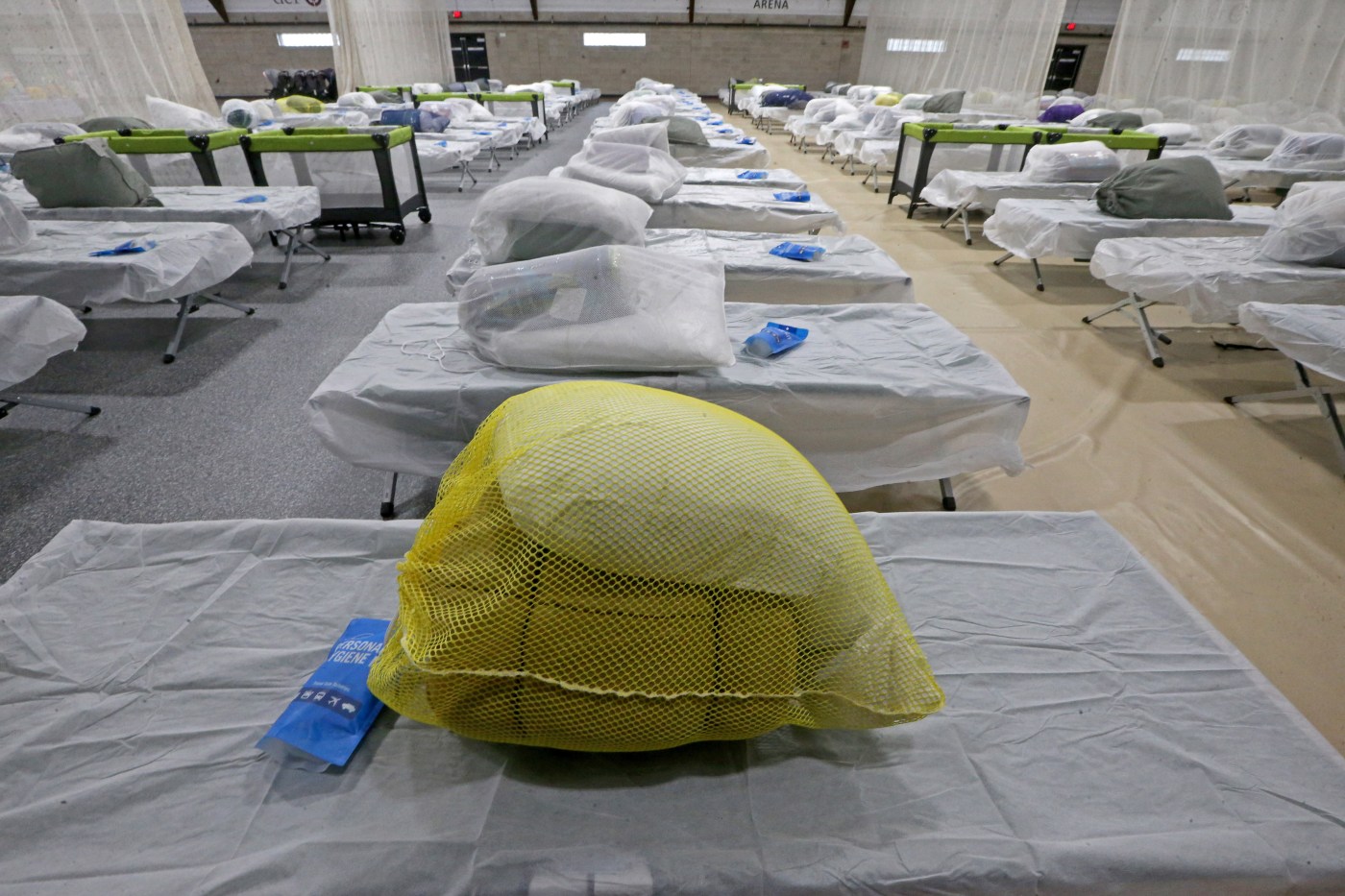
Pols & Politics: State-run shelter residency requirement rising from the ashes, again
A twice-failed push to limit who can access state-funded emergency shelters based on the amount of time they have been in Massachusetts will rise from the ashes again later this week when the House takes up its fiscal year 2025 budget proposal.
The Republican-backed effort to require prospective shelter residents to have lived in the state before accessing services is among the 1,500 amendments lawmakers have filed to the branch’s spending plan. It will likely face stiff resistance from Democrats who have already shot down the idea.
The proposal from Rep. Paul Frost, an Auburn Republican, would put in place a three-month residency requirement for state-funded shelters, which is lower than the year-long and six-month prerequisites he tried to get Democrats to agree to in previous spending bills.
A residency requirement, Frost said, could disincentive migrants from traveling to Massachusetts, which is facing record-level demand on emergency shelters and an expected $932 million tab for services this fiscal year and $915 million in the next.
“I think we have to do something because I don’t think that the other side, the Democrats, are offering anything that’s realistic to stop it, short of something happening at the federal level to deal with this, which obviously, I can’t control, the governor can’t control, the Legislature can’t control,” he told the Herald on Friday.
Frost’s third attempt is likely to meet the same fate as the last two after Rep. Alice Peisch, a top House Democrat, argued last month that the proposal could have faced a “significant amount of litigation.”
“There’s a serious question of the constitutionality of whether we can do this,” Peisch said during debate on the floor of the House. “Those who are arriving have the potential to end up on the streets, which none of us want.”
During a debate in November, when the policy change was first pitched, Peisch said a residency requirement will likely not reduce the number of people seeking shelter.
“But it will drive those that this amendment makes ineligible to seek shelter at emergency rooms, airports and other facilities that are ill-equipped to handle them,” she said.
Frost said if someone wants to challenge a residency requirement in court, then let them. He pointed to the cap on the number of families in state-run shelters that Gov. Maura Healey unilaterally implemented last year, a move that was successfully defended in court.
Related Articles
Pols & Politics: MBTA should have halted GLX project after red flags surfaced, Eng says
Pols & Politics: Details of Gov. Healey’s blanket pot pardons could come Wednesday
Pols & Politics: Battle lines starting to form in race for SJC Suffolk County clerk
Pols & Politics: Rachael Rollins among top 40 highest paid at Roxbury Community College
Pols & Politics: The Mooch resurfaces, MassGOP infighting and the art of shooting
“I think myself and other Republicans are trying to offer some actual solutions and if we got to go to court, we’ll go to court,” he said, acknowledging that the amendment will need to pass in order to end before a judge.
The best of the rest…
The House budget debate scheduled to start Wednesday will take up most of the political oxygen on Beacon Hill this week — barring any unforeseen political breakthroughs like movement on a so-far stalled-out deal to fund emergency shelters for the rest of the fiscal year.
Expect debate on the House’s $57.9 billion fiscal year 2025 budget to span multiple days, with representatives negotiating most amendments behind closed doors and then dispensing with them in mega bundles organized by category.
The 1,495 amendments House members filed have a fiscal impact of just over $2 billion, according to the Massachusetts Taxpayers Foundation, a non-partisan organization focused on state and local fiscal, tax, and economic policy.
Nearly three-quarters of the amendments are local earmarks, 15% are outside policy proposals, and the remaining 12% either add new line-items to the budget, increase appropriations without a designated purpose, or amend policy language, according to the foundation.
House lawmakers have added an average of $108 million in additional spending during budget debates between fiscal years 2022 and 2024, according to the Massachusetts Taxpayers Foundation.
Beacon Hill onlookers will likely be keeping an eye on how much in additional spending lawmakers add to the House budget during debate this week as the state’s finances continue to remain in a challenging spot, Massachusetts Taxpayers Foundation President Doug Howgate said.
“As the state’s fiscal situation remains a little uneasy, does that impact what they’re spending money on? Do we see a reduction in local projects they spend money on or not?” he said.

